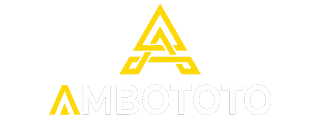Buat kamu yang lagi cari info terkini, nih ada data hk yang lagi hits banget buat para peminat nomor! Bukan cuma buat yang suka taruhan, tapi juga buat yang suka ikutan tebak-tebakan. Dengan data hk, kamu bisa dapetin hasil langsung dan analisis jitu. Gak perlu khawatir ketinggalan lagi deh! Ayo, cek sekarang buat dapetin insight seru seputar Hong Kong!.
TANGGAL | HARI | KELUARAN |
22-11-2023 | RABU | - |
21-11-2023 | SELASA | 5801 |
20-11-2023 | SENIN | 5621 |
19-11-2023 | MINGGU | 9297 |
18-11-2023 | SABTU | 4608 |
17-11-2023 | JUMAT | 7757 |
16-11-2023 | KAMIS | 0432 |
15-11-2023 | RABU | 7526 |
14-11-2023 | SELASA | 2060 |
13-11-2023 | SENIN | 6212 |
12-11-2023 | MINGGU | 3694 |
11-11-2023 | SABTU | 5850 |
10-11-2023 | JUMAT | 9076 |
09-11-2023 | KAMIS | 8092 |
08-11-2023 | RABU | 3138 |
07-11-2023 | SELASA | 8805 |
06-11-2023 | SENIN | 1081 |
05-11-2023 | MINGGU | 9314 |
04-11-2023 | SABTU | 7245 |
Update Keluaran HK Hari Ini Dari Pusat
Hari ini jadi lebih seru dengan kabar terkini dari Hong Kong Pools, nih! Yuk, kepoin “Keluaran HK Hari Ini” biar nggak ketinggalan update angka favoritmu. Mulai dari angka jitu, prediksi, sampe analisis yang oke banget, semuanya lengkap disini untuk para bettor. Jadikan keluaran hk ini menjadi prediksi hk jitu Kamu di toto Hong Kong.
Dengan Keluaran HK, kamu bisa langsung akses hasil undian paling up-to-date, tanpa ribet. Gak perlu lagi bingung nyari info di sana-sini, karena semuanya ada di satu tempat. Mulai dari angka keluar, statistik, sampe prediksi untuk putaran berikutnya, lengkap banget deh.
Result HK Tercepat dan Hasil Hk Hari Ini
Result HK adalah hasil pengeluaran yang ditunggu-tunggu oleh para pemain toto togel Hongkong. Dalam permainan toto togel, keluaran HK menjadi penentu kemenangan untuk para bettor. Mengapa begitu? Karena dengan mengetahui hasil keluaran HK secara cepat dan akurat, pemain bisa memprediksi angka-angka yang akan keluar pada putaran berikutnya. Dengan memiliki informasi result HK hari ini tercepat, pemain bisa lebih siap dalam merumuskan strategi taruhan mereka. Mereka bisa menganalisis pola dan tren dari data-data sebelumnya agar dapat meningkatkan peluang menang mereka. Selain itu, dengan mengetahui hasil keluaran HK secara update cepat juga memberikan keuntungan dalam melakukan pembelian angka togel untuk putaran selanjutnya. Para pemain tidak perlu khawatir tentang keakuratan data tersebut karena Kami menyediakan layanan data HK terlengkap. Semua angka keluaran diupdate setiap harinya sehingga pemain selalu mendapatkan informasi yang akurat dan terpercaya.
Angka Keluaran Data Hk Di Indonesia Malam Ini
Togel hk banyak disebut sebagai togel hongkong, togel hkg ataupun toto hk. Togel hk menyediakan keluaran hk maupun pengeluaran hk sebagai angka result togel hongkong asli. Para pemain bisa dapat melihat semua keluaran hk hari ini melalui tabel data hk yang sudah Kami sediakan diatas. Semua barisan keluaran hk hingga pengeluaran hk kami tayangkan secara langsung pada setiap hari ini. Jadi bagi anda yang merupakan pemain sejati dari togel hongkong bisa mempergunakan tabel keluaran hk hari ini di atas sebagai referensi untuk menyaksikan pengeluaran hk terbaru berikutnya.
Fungsi Data HK Adalah Hasil Pengeluaran HK Terlengkap
Data HK adalah informasi yang sangat penting untuk para pemain toto togel Hongkong. Dengan memiliki data hk ini, mereka dapat melihat semua hasil pengeluaran HK secara terperinci. Tidak hanya angka keluaran pada hari ini, tetapi juga angka-angka sebelumnya dan Data HK sendiri adalah sumber daya yang lengkap dan komprehensif karena mencakup semua hasil. Ini berarti para pemain dapat dengan mudah melacak pola angka atau tren tertentu dalam permainan togel Hongkong. Dalam dunia togel online, memiliki akses ke data yang akurat dan juga terpercaya sangatlah penting.
Selain itu, Data HK juga memberikan informasi tentang jumlah hadiah yang diberikan pada setiap jenis taruhan. Hal ini memungkinkan para pemain untuk mengatur strategi mereka berdasarkan risiko dan juga potensi imbalannya. Dengan adanya fungsi data hk di situs ini, para bettor togel Hongkong tidak perlu lagi khawatir kehilangan informasi penting tentang hasil pengeluaran hk.
FAQ: Pertanyaan Seputar Data HK Hari Ini
Apa Itu Data HK?
Data hk adalah informasi keluaran hasil hk sebelumnya dan hari ini untuk memudahkan pemain prediksi angka keluaran togel berikutnya.
Bagaimana cara mengecek result hk hari ini?
Buat kamu yang ingin mengetahui keluaran hk atau hongkong pools langsung cek melalui hasil tabel yang sudah kami sediakan diatas.
Pengalaman Data Hongkong Yang di Dapat di Situs Ini?
Testimoni yang diberikan para pemain setelah menjadikan situs keluaran hk ini sebagai situs terpercaya ialah member lebih mudah mengakses tanpa ribet dan juga situs ini update tepat waktu dan cepat setiap hari nya.
